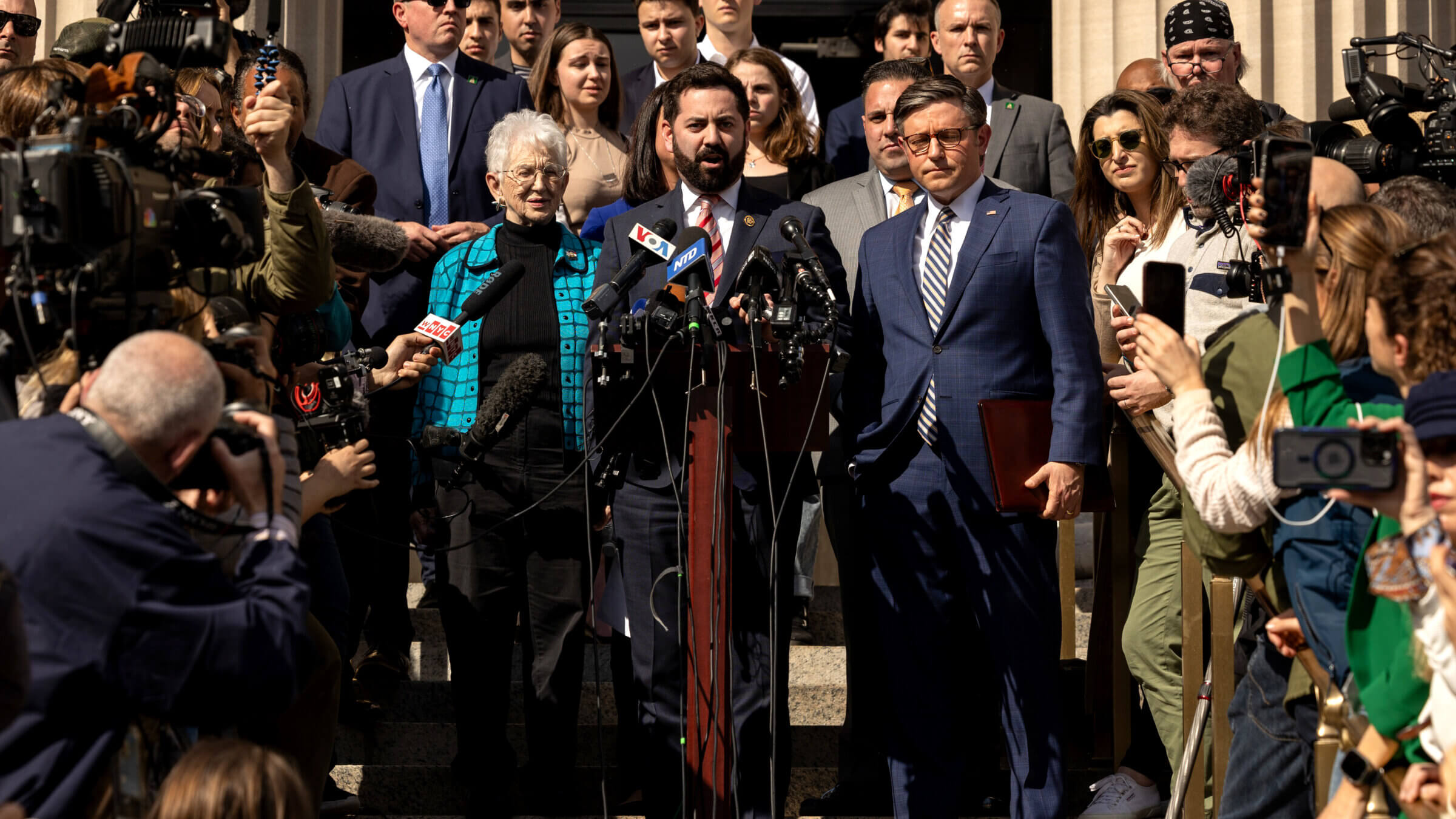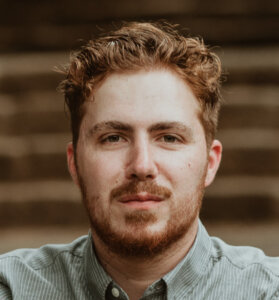One plan to save Columbia’s Jewish students could actually hurt them
Several prominent politicians and pundits have called for ending Columbia’s federal funding and blacklisting all its students

Rep. Mike Lawler, a New York Republican, at Columbia University with House Speaker Mike Johnson. Lawler has called for pulling all federal funding from Columbia. Photo by Getty Images
“Antisemitism Notebook” is a weekly email newsletter from the Forward, sign-up here to receive the full newsletter in your inbox each Thursday
Some political leaders and pundits upset at what they see as an antisemitism crisis at Columbia University are skipping over practical suggestions and going straight to a punishment that could destroy the lives of many Jewish students: Cutting off the school’s federal funding.
Like many private institutions of higher education, Columbia receives tens of millions of dollars in federal research grants. More than 20% of its students rely on federal student aid to pay tuition.
“Every last federal dollar should be taken away,,” Rep. Mike Lawler, a New York Republican, said outside campus earlier this week. “These students are not entitled to it.”
Keith Rabois, a conservative Silicon Valley investor, suggested an even more severe punishment: “Employers should immediately refuse to hire any Columbia graduates,” Rabois posted on X, where he has 300,000 followers.
In the name of fighting antisemitism, these men would strip Columbia’s estimated 5,000 Jewish students of their federal grants and make them unemployable, along with thousands of their peers who have not been involved in the protests.
They and other warriors against antisemitism also generally ignore the fact that there are many Jews among the anti-Zionist activists being accused of antisemitism — or, worse, deny their Jewishness.
What too many people ignore is that the type of extreme outside interventions into campus antisemitism like those proposed by Lawler and Rabois often frustrate even the pro-Israel Jewish student activists they’re trying to help.
Jacob Schmeltz is a senior at Columbia and the campus representative for Jewish On Campus, a group that fights antisemitism, including some criticism of Israel. Schmeltz, whose organization has partnered with the Anti Defamation League and World Jewish Congress, told me that he appreciates the national attention on Columbia.
But he also worries about student voices being drowned out.
“I hope every other outside group that comes in and wants to speak on behalf of Columbia Jewish students actually speaks to Columbia Jewish students and centers our experiences,” Schmeltz said. “Don’t weaponize whatever is going on at our university for your own gain.”
























